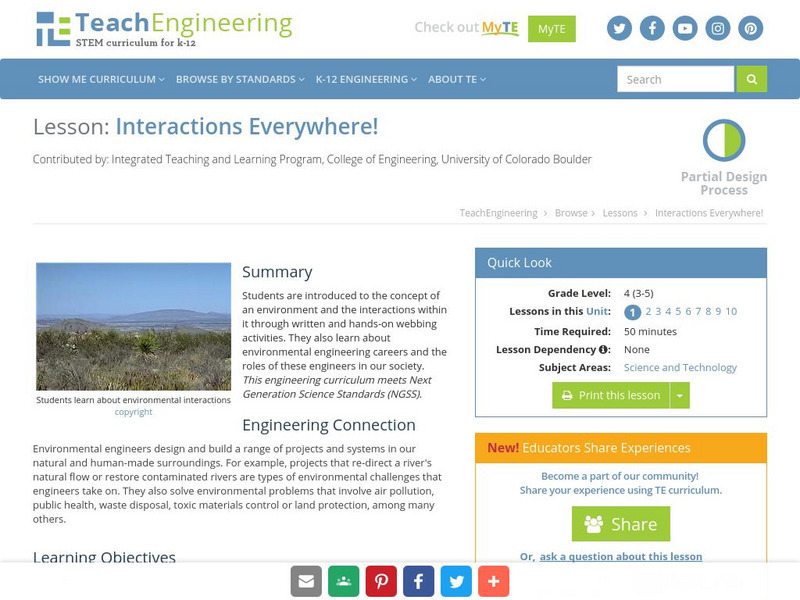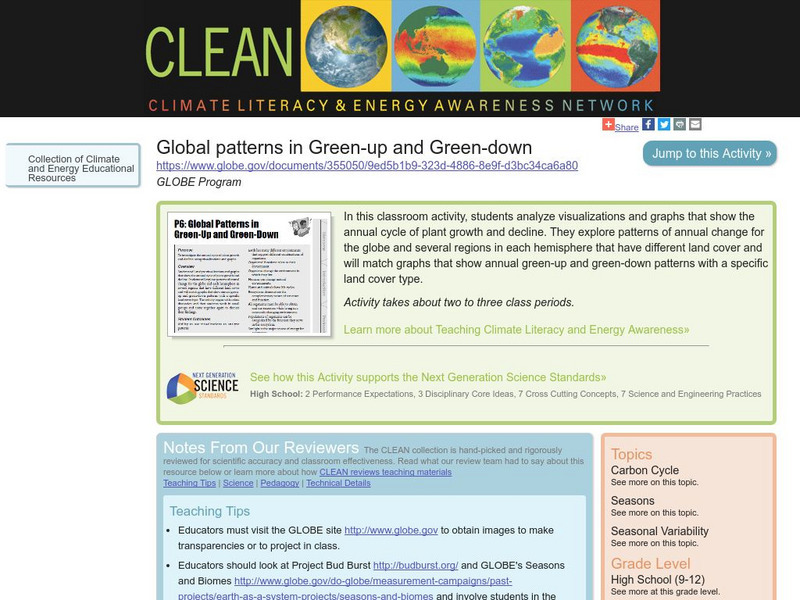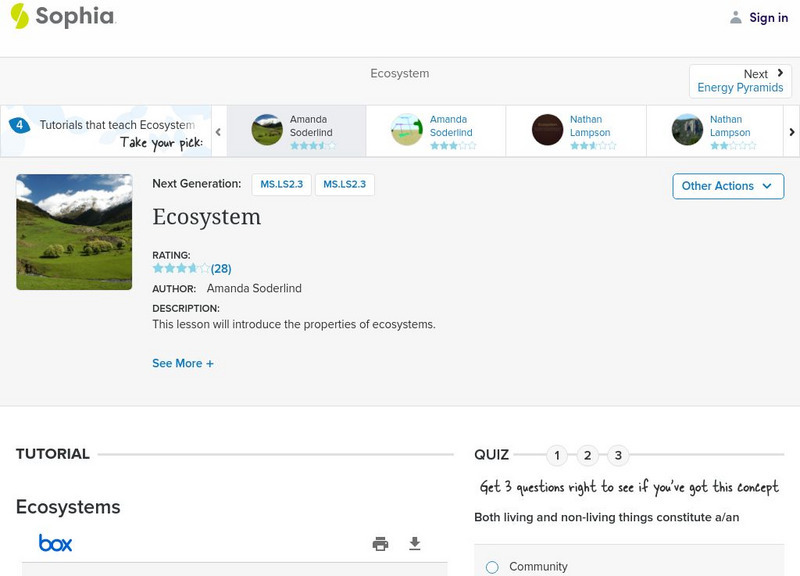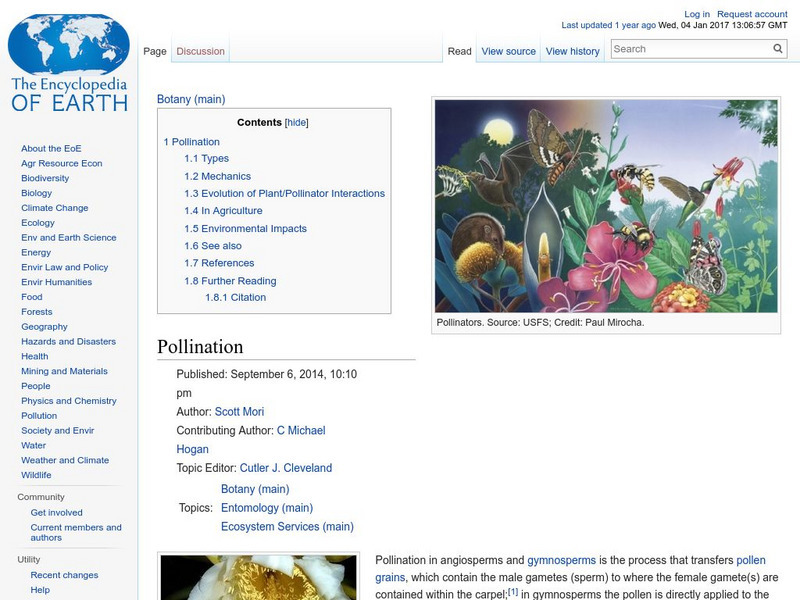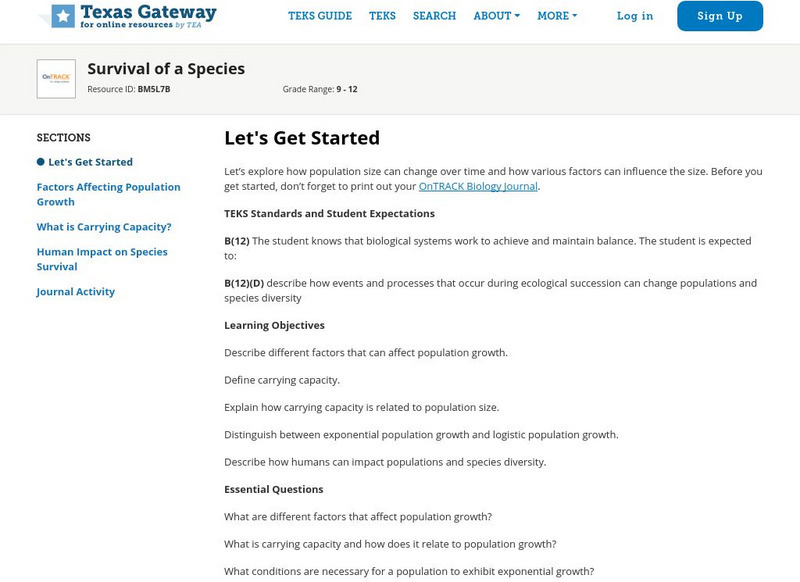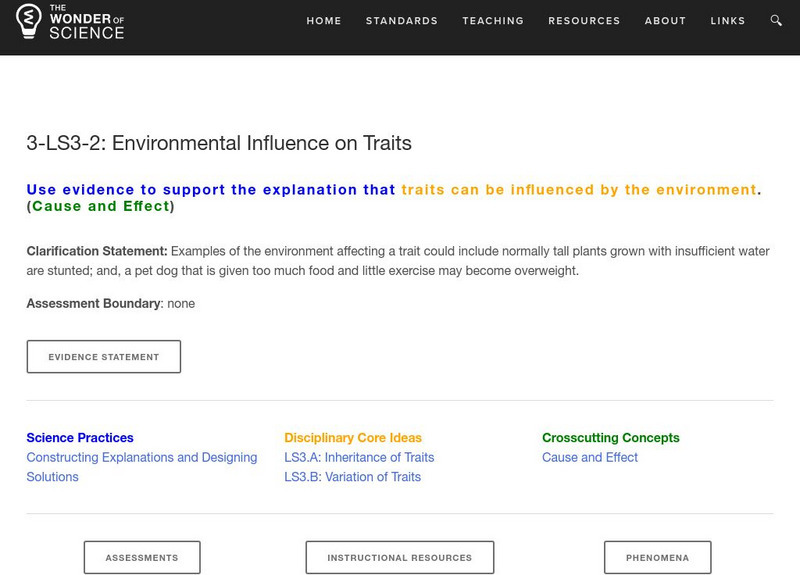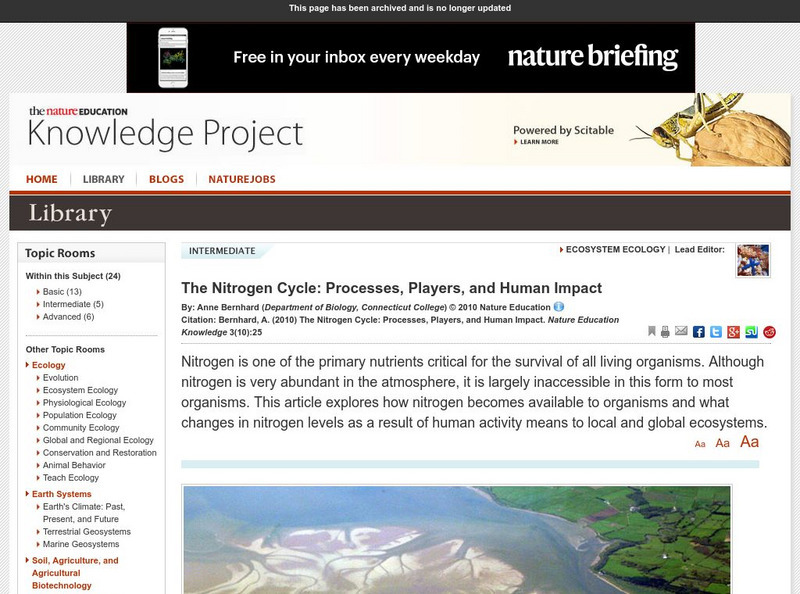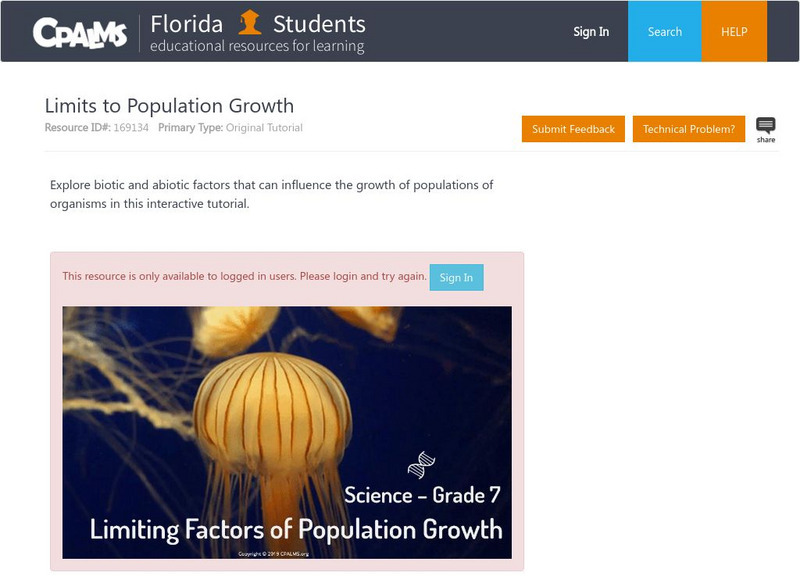SMART Technologies
Smart: Energy Flow in an Ecosystem
Students learn about Abiotic and Biotic Factors and how they affect the ecosystem in which an animal might live in.
Khan Academy
Khan Academy: What Is Ecology?
A webpage giving an overview of ecology. Learn about the biotic and abiotic factors that make up an ecosystem as well as the different levels of ecology.
BBC
Bbc: Gcse Bitesize: Adaptations, Interdependence and Competition Aqa
The abundance and distribution of organisms in an ecosystem is determined by biotic and abiotic factors. Animals and plants have adaptations to allow them to compete for resources.
TeachEngineering
Teach Engineering: Interactions Everywhere!
This lesson introduces students to the concept of an environment and the interactions within it through written and hands-on webbing activities. The lesson also introduces students to environmental engineering careers and their roles in...
Other
Vida: Living and Non Living Things
Study these four images when learning about living and nonliving things.
BiologyWise
Biology Wise: Facts About Autotrophs and Heterotrophs
Explains what autotrophs and heterotrophs are, the several types of each, their roles in an ecosystem's food chains, and the differences between them.
University of Michigan
University of Michigan: The Concept of the Ecosystem
Lesson looks at the definition of an ecosystem, biogeochemical cycles, and factors responsible for the differences between ecosystems.
Oswego City School District
Regents Prep: Ecosystems/communities
Abiotic factors vary in the environment and determining the types and numbers of organisms that exist in that environment. Factors which determine the types and numbers of organisms of a species in an ecosystem are called limiting...
Texas Instruments
Texas Instruments: Ecology Vocabulary
This StudyCards stack enables students to review the vocabulary used in studying ecology.
Climate Literacy
Clean: Global Patterns in Green Up and Green Down
Young scholars analyze and explore visualizations and graphs that show the annual cycle of plant growth and decline. They investigate several regions in each hemisphere that have different land cover and will match graphs that show...
PBS
Pbs Learning Media: River Rewilding: Advanced Water Quality
In this unit, students will try to improve stream quality and reduce human impacts by taking action.This Advanced Water Quality unit is packaged into three smaller parts: Part 1: Stream Habitat Assessment; Part 2: Macroinvertebrate...
Sophia Learning
Sophia: Ecosystem
A PowerPoint giving a basic definition of an ecosystem. Also explained with a definition and examples are abiotic and biotic factors of the ecosystem.
PBS
Pbs Teachers: Canyonlands: Tonight Our Guest Is
This lesson will help students understand that animals adapt to abiotic and biotic conditions in their environment, some of which have evolved over a long period of time through the process of natural selection, and identify the...
BiologyWise
Biology Wise: Pollination of Flowers
Discusses what pollination is, the types, what happens during pollination, its importance in agriculture and horticulture, and the biotic and abiotic factors that facilitate pollination. Has some embedded ads.
Georgia Department of Education
Ga Virtual Learning: Ap Biology: Ecology
Students review the study of living things and make connections back to Earth's systems. This unit focuses on how various species, grouped in populations and communities, work with the nonliving things around them to ensure survival.
PBS
Pbs Learning Media: Living and Nonliving
What is it that distinguishes a living organism from a nonliving object? This collection of images presents examples that aren't as clear-cut as one might think, enticing students to question the meaning of life.
Encyclopedia of Earth
Encyclopedia of Earth: Botany: Pollination
Scientific article detailing what pollination is, types of pollination, animals (mainly insects) that facilitate pollination, ways pollination can take place, its evolution, pollination in agriculture, and threats to pollination....
Texas Education Agency
Texas Gateway: Survival of a Species
Given scenarios, illustrations or descriptions, the student will describe how long-term survival of species is dependent on changing resource bases that are limited.
The Wonder of Science
The Wonder of Science: 3 Ls3 2: Environmental Influence on Traits
Work samples, phenomena, assessment templates, and videos that directly address standard 3-LS3-2: environmental influence on traits.
Science Education Resource Center at Carleton College
Serc: Energy Pyramids in Different Biome Locations
A research activity where young scholars research the various biotic and abiotic factors that combine to make up a biome. The end product will be the creation of a PowerPoint presentation that identifies these factors and the creation of...
Science Education Resource Center at Carleton College
Serc: Plant Succession Field Investigation
This lesson is to be used as an introduction to ecosystems and plant succession. Students will observe both biotic and abiotic features of a selected site on a plot of wild land. They will take notes, make drawings, and collect samples...
Nature Research
Nature: The Nitrogen Cycle: Processes, Players, and Human Impact
Find out how nitrogen is cycled throughout the biosphere as it passes through the nitrogen cycle. Learn about the biotic and abiotic factors involved in the process as well as the implications of human activity on the nitrogen cycle.
Untamed Science
Untamed Science: Biology: World Biomes: Lakes and Ponds Biome
Learn about the biotic and abiotic factors of lakes and ponds as well as learning how lakes form through reading and video clips.
CPALMS
Florida State University Cpalms: Florida Students: Limits to Population Growth
Explore biotic and abiotic factors that can influence the growth of populations of organisms in this interactive tutorial.
Other popular searches
- Biotic Abiotic
- Biotic and Abiotic Factors
- Biotic and Abiotic
- Abiotic Biotic Environment
- Abiotic and Biotic Elements
- Abiotic and Biotic Resources
- Biotic Abiotic Factors
- Abiotic Biotic Lab
- Ecosystems Abiotic Biotic
- Biotic Abiotic Pictures
- Biotic Abiotic Piotures
- Biotic or Abiotic Changes





